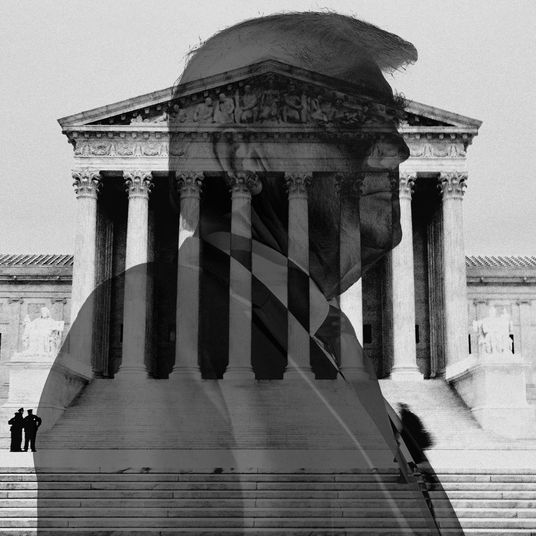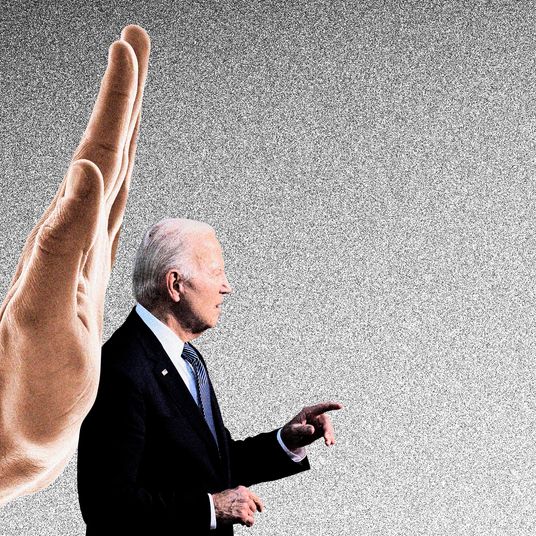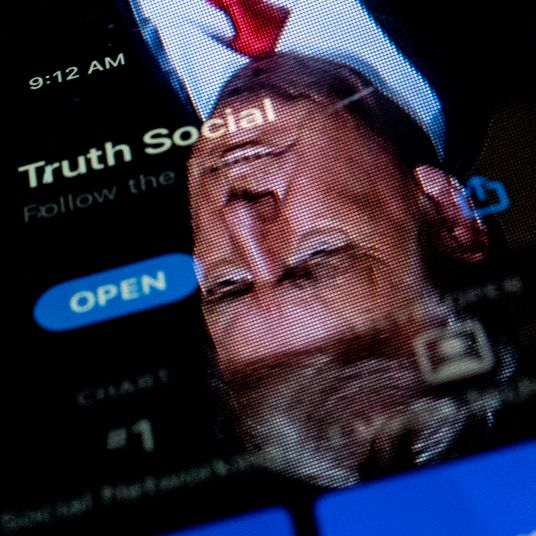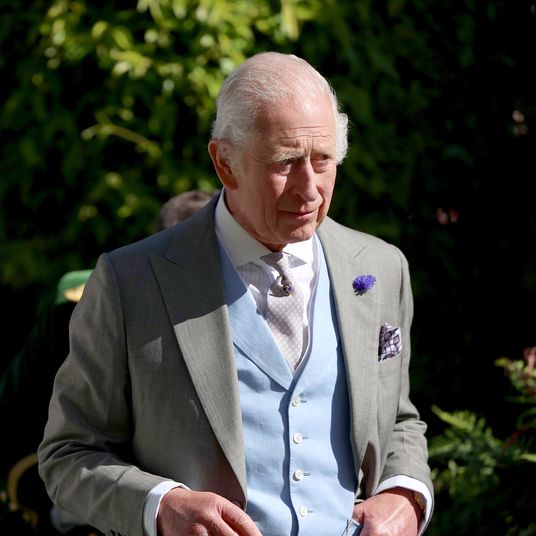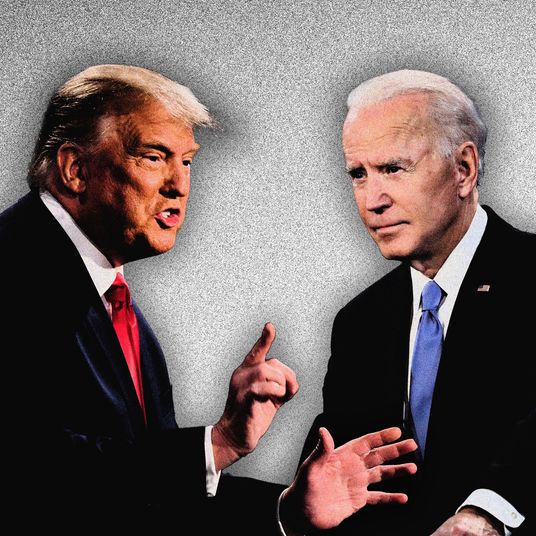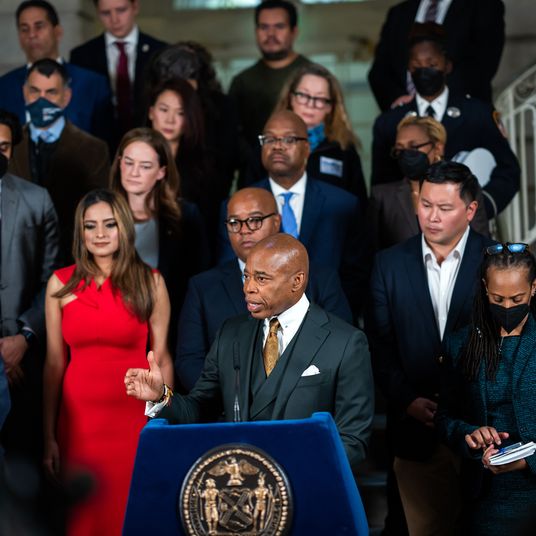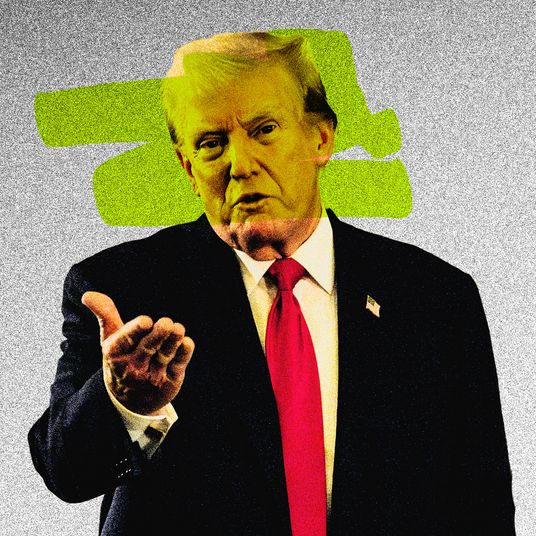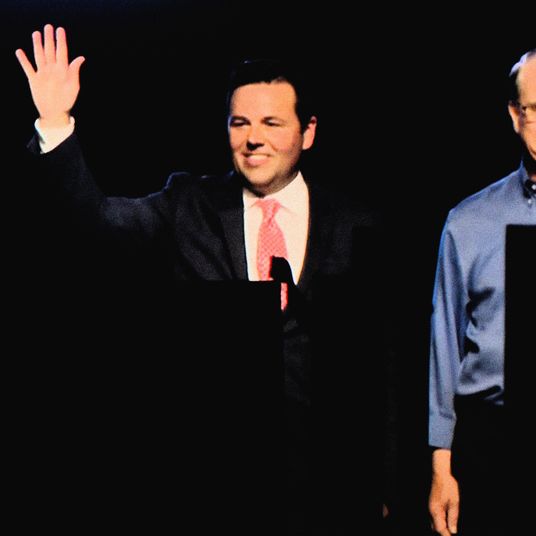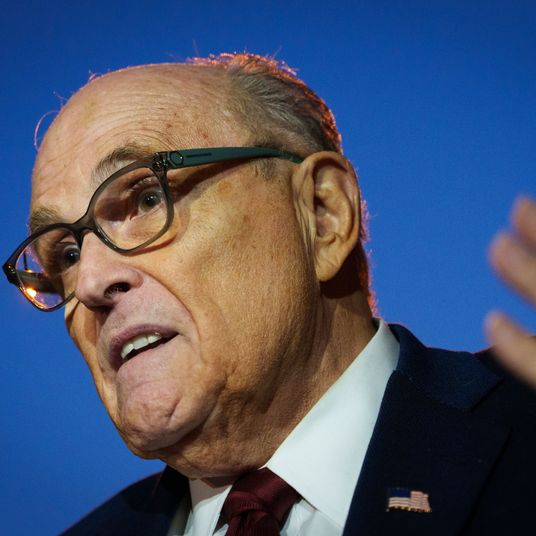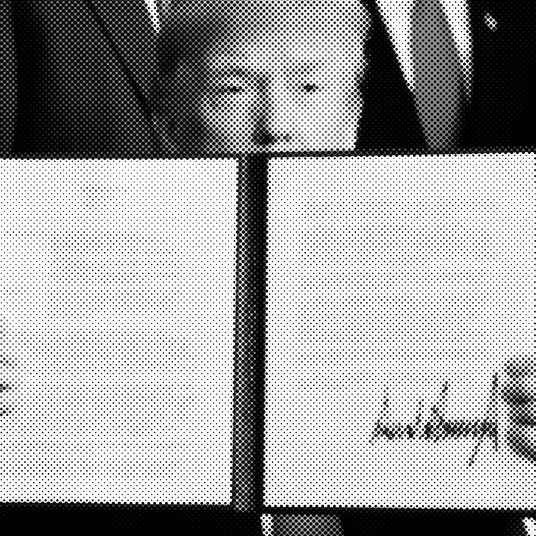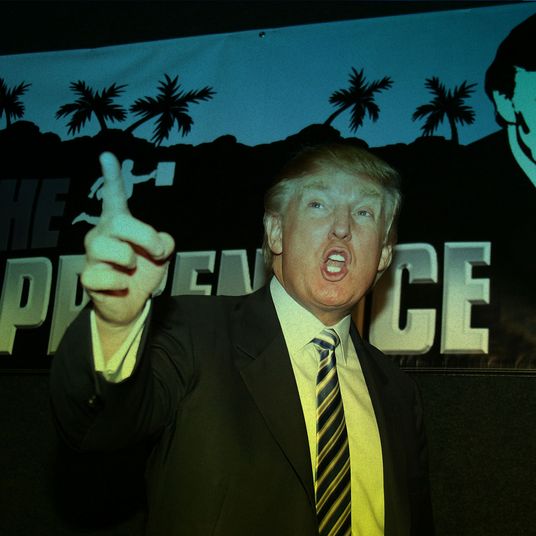Few political phenomena are more overdetermined than J.D. Vance’s endorsement of Donald Trump’s coup attempt. Vance has carried off a cynical but highly successful mid-career switch from venture capitalist to professional pseudo-populist that requires catering to the beliefs of his constituency; he has fallen in with far-right authoritarian intellectuals who long for the destruction of the republic; and he is angling for a spot on Trump’s ticket.
Each of these individually provide Vance with more than enough reason to bless Trump’s attempt to secure an unelected second term. Collectively, they make the decision a no-brainer.
But Vance, surprisingly, still possesses a brain, or at least enough pretensions to wish to justify his stance to those who do. And so, in his interview with Ross Douthat, Vance could have simply justified Trump’s attack on democracy by pledging fealty to Trump. Instead, he constructed an elaborate rationale for a man he once described as “America’s Hitler” attempting his own Beer Hall Putsch.
Like many Republicans, Vance feels embarrassed by the claims made by Sidney Powell and Rudy Giuliani that the election was rigged by Dominion Voting Systems and Hugo Chavez. Instead he argues that it was rigged by emergency pandemic measures to expand mail-in voting and media coverage of the Hunter Biden laptop:
The argument is basically that there were a host of institutional actors, technology companies, various forms of censorship, that mobilized in 2020 in a way that they hadn’t in 2016. There was tech censorship. People were primed to push back against any October surprises.
And look, October surprises are part of American democracy, and whether you think Hunter Biden is as major an issue as I do or disagree, in American democracy you let the voters decide.
That was a way in which the basic democratic will of America was obstructed. I don’t see any reason to think that Dominion voting machines switched ballots, but there was a breakdown in democratic will.
Point No. 2 is that the rules of the game were changed in the middle. When does a ballot have to be mailed in Pennsylvania to count under the election rules? That was changed. That was changed for Covid reasons, in a way that partially is the fault of the Republican National Committee — we weren’t prepared for it, Democrats were, and they took advantage of it.
None of these complaints comes anywhere close to justifying Trump’s attempt to overturn the election. If voting procedures hadn’t been changed to accommodate a once-in-a-century pandemic, that would have distorted the result even more. And if biased media coverage makes elections illegitimate, then every Republican victory since the founding of Fox News deserves an asterisk.
Vance goes on to argue that Trump’s attempt to nullify the election result was fine because it followed constitutional procedures:
He was using the constitutional procedures. Now, your argument is that he was using them ineffectively, or maybe even illegitimately, but he was trying to take a constitutional process to its natural conclusion.
Suppose it’s true that all this was constitutional. The Constitution, according to Vance, allows a candidate who has clearly and provably lost an election to overturn the result by getting his allies in Congress to accept a series of absurd claims, and then prevail on his own vice-president to join them.
If that is true, then the Constitution contains a wormhole that nullifies elections and functionally creates a dictatorship, as long as the president has reliable allies in Congress and the vice-presidency. If the Constitution actually did hand this gun to the president, and the only thing standing between the country and dictatorship was his willingness not to pick it up, then that would make it all the more important to denounce Trump’s efforts to fire it.
Instead, Vance just shrugs off Trump’s immoral effort to overturn the election because it followed the rules up until January 6.
But this ridiculous argument is all academic anyway, because on January 6, Trump stopped following the rules. Here is where Douthat brings up this rather important flaw in Vance’s case. And here is Vance’s pathetic reply:
I think people really, really underrate the sense to which there is palpable and actionable frustration, and I’m always surprised that their assumption appears to be that Trump is the worst, rather than the best, expression of that frustration. Or at least, one of the better in the whole host of possibilities. We’re in this moment where people are really pissed off, and I think for legitimate reasons. And I don’t understand, looking at the country that we have right now, and saying, ‘The riot on January the 6th was the worst expression of this.’
All the lawyerly cleverness dissipates, and Vance is left muttering about how bad things happen and the other side is worse than Trump. There’s no half-serious justification, just tribal grievance.
“People are pissed off,” he explains. Well, yes, that happens. People are always pissed off. Humans have constructed various ways of working around this reality. One of them, a constitutional republic with fair elections and robust liberal protections, has worked fairly well. I propose we keep it going, even if Vance has calculated that his continued advancement might require putting it aside.





